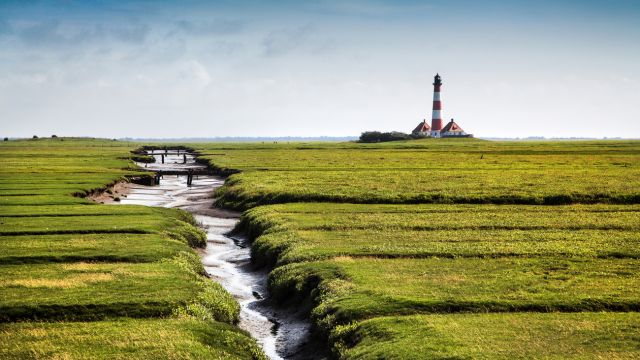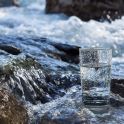
NAWAK - Development of Sustainable Adaptation Strategies of the Water Management under the Conditions Climatic and Demographic Change
From 2013 to 2016 on behalf of the Federal Ministry of Education and Research (BMBF), GRS is coordinating a project that focuses on the changed situation of the water management. Together with four German water suppliers – the Leibniz-Institute for Applied Geophysics, the Lower Saxony Water Management, Coastal Defence and Nature Conservation (NLWKN), and the TU Braunschweig, GRS is developing strategies for the water suppliers in order to be able to adapt to the expected changes and to ensure the supply of drinking water. In this project - called NAWAK (“Development of Sustainable Adaptation Strategies of the Water Management under the Conditions Climatic and Demographic Change”) – the researchers are investigating the water supply in three German regions:
1. The catchment area of the Sandelermöns waterworks of the Oldenburgisch-Ostfriesischen Wasserverband (water supply company OOWV) at the North Sea
2. The Water supply in the Elbe-Weser triangle by the example of the water supply in Stade (Northern Germany) and in Land Handeln (Lower Saxony), as well as
3. The supply area of the Heidewasser GmbH in Saxony-Anhalt
Each of these regions is facing special problems. The water suppliers at the River Elbe and North Sea are concerned above all with the saltwater issue. The German coastal regions are already being directly threatened by the advancement of the fresh/saltwater boundary in the underground. In Saxony-Anhalt, on the other hand, the water suppliers are faced with major problems caused by the current population decrease.
As a first step of this new project, the researchers want to investigate the influence of the climate change and the demographic development on the water supply. For the impairment of the water suppliers, the researchers derive various scenarios and evaluate their consequences. This requires the use of i. a. calculation codes allowing the water supply and groundwater movements to be reflected and predicted. Based on these investigations, in a second step, the researchers formulate adaptation strategies for the water supply. As the problems may vary from region to region, and the water supply is organised in a decentralised way, there are no generally applicable adaptation strategies for all German water suppliers. Thus, the main goal of the NAWAK project is to find individual strategies that include concrete measures focusing both on recommendations for act.
Project highlights Environment and Energy

In the project, the GRS research team developed a central database for all information on water supply facilities in Germany that is relevant for radiation protection.